- Home
- Rose Tremain
Restoration Page 10
Restoration Read online
Page 10
I babble on. The King does not speak, but works methodically, unhurriedly at his dissection until all – heart and lungs and spleen and windpipe and sperm sacs – is laid out before us. I speak about my painting of my park and Finn's loathing of it. I try to describe the painting but hear myself, as if my voice is no longer mine, as if it belonged to Pearce's worm-filled lunatic, describe instead the feelings that drove me to painting: my terrible fear that the King had abandoned me, no longer loved me or found any need of my company. "I was your Fool," I hear myself wailing, "and however serious may be the business of government, do not tell me that the King has no need of laughter!"
I am crying again. Tears are coursing down my face and onto the toad on the tray, over which, finding myself now tired to my very marrow, my body has slumped.
I see the King's hands put down his instruments. He picks up a cloth and wipes blood and viscera off his fingers. And then I lose him. I do not know what happened except that I hear myself talking on and on, to the King I believe, who is no longer near me but in the shadowy laboratory somewhere, moving up and down as he always does, restless and tall and never still… but he is not there. I am alone in the place. He has gone out into the sunlight and I am lying down in the dark, under the oak work bench. I am getting into my grave.
I am woken by an elderly man, wearing the garb of an apothecary. I am parched. The old man understands this and gives me cool, sweet-tasting water in a beaker.
Food is brought to me. I am seated at a little table. I eat some bread. A liveried servant hands me a letter.
I am in the Physic Garden. The sky above me is bright. I break the seal of my letter.
Poor Merivel, (says the letter) I did not warn you, the King's Drops alchemise secrets into words. And yet you have told me nothing. For every thing you revealed, I saw in your face. Beware, however, that love does not turn into need. And so Godspeed with your mission to Celia. I would have her think upon our displeasure for the duration of two months, after which time, she may, if in humble spirit, return to Kew, where we shall come to her.
Signed, Charles Rex
I look over to the sundial. What I wish to say to the King is, "Let me make my entrance again. Let me arrive again, knowing what I know about the Drops." But of course he is no longer there.
Chapter Seven. Water
I did not linger at Whitehall.
Though greeted warmly by a posse of gallants in whose chambers I once played at cards, forfeits and music-making, I found I was in no mood for their company. My head ached intolerably and the thoughts fashioned by my brain seemed to have the quality of dreams. I had a terrible longing to lie down, not necessarily to sleep, but simply to rest my brain. Fain would I have gone to that first chamber of mine, where I had performed my cure-of-neglect upon Lou-Lou, and put on a clean nightcap and lain upon the soft pillows and listened to the great orchestra of the river.
Dinnertime found me at the Leg Tavern where I drank a good quantity of ale to slake the thirst that still burned in my stomach, and then slept an hour on one of its hard settles. I was hungry when I woke and was served a most peculiar meal, a turnover of starlings and a pigs trotter pickled in olives. "Starlings," said the pretty wench who served me, "having blackish flesh and strong-tasting, cure all men of mopish humours," and it is true that, when I had eaten, I felt my thoughts to be more sensible. Either the starlings had worked some humoural change upon me, or merely the potent effect of the King's Drops was now at last abating.
When I emerged from the Leg, I found the street burnished with most beautiful winter sunlight. I am very susceptible to weather. In a Norfolk wind, I sometimes feel my sanity flying away. My good spirits replenished, then, by the starling turnover and the afternoon sun, I decided to make my way to the house of Rosie Pierpoint. To supplement Pierpoint's meagre wage as a bargeman, Rosie had set herself up, in 1661, as a laundress, and it was among her crimping irons and her vats of starch and her great coal-burning stove that I hoped to find her. If I could not persuade her to let me touch her Thing, I would content myself with watching the sunset from her window while she washed my shirt and removed the quail stains from my coat pocket.
She was at home and hard at work. So great was the heat in the workroom, she was stripped down to her bodice and her soft arms were moist and pink – a pink so very pretty that I would dearly love to arrive at the precise colour on my palette. Even as I approached Rosie and she rested her flat iron on the stove top and we embraced each other with a good deal of joy, I remembered seeing, in some great painting, a cherub the colour of Rosie's arms and fell to wondering how, in his winged existence, the little fellow had got so hot.
What followed was most sweet and delectable, reminding me that there is scarcely any more agreeable thing on earth than the meeting of parted lovers. To the ease of mind engendered by this Act of Forgetting is added the balm of pleasant memory. As the brain banishes its ever-present consciousness of death, so the body finds itself enraptured by rediscovery. It is not, I think, fanciful to say that such meetings are both Acts of Oblivion and Acts of Remembrance.
I stayed with Rosie until the sun went down. We lay on a rumpled pile of soiled sheets, shirts, petticoats, lace collars and table cloths and on this dirty linen made a very fine feast of each other, a feast of which, if I live to be an old man, I may well, in my clean and lonely bed, find myself dreaming.
We got up at last and Rosie lit two rushlights and by the light of these would work on at her ironing table till Pierpoint came home and they had their supper of whelks and oysters and bread and ale.
And I made my way to Hydes Wharf at Southwark where I hired a tilt-boat and asked the tilt-man, who had a foxy and mischievous face, to paddle me to Kew.
" Kew is a fairish way," this tilt-man said, "and it will be black pitch night 'fore we get to there, Sir."
"I know," I replied, "but my day and the best part of last night both put me into a lather of heat and I have a great mind to feel the cool of the river."
"How shall we keep the channel, Sir, in the dark, and not stray onto shallows or be splintered to pieces by a lighter or a barge?"
"There is a three-quarter moon," I pointed out, "and no cloud. We shall see our way tolerably well."
"We shall be as cold as corpses by the time we get there!"
It was plain to me by now that Fox (as I christened the tilt-man) had no desire to take me on this journey, but, remembering that in this new age most things can be had by bribery, I offered to double his fare from two shillings to four. I settled myself comfortably under the little canopy, and we embarked on the evening tide.
Why did I wish to go to Kew? Now that the effects of the Drops had worn off entirely and I was once again capable of rational thought, I knew that I must give some attention to what the King had told me concerning Celia. For reasons which I could not completely comprehend, I felt exceedingly uncomfortable with the message I was instructed to convey. Something within me wished, for the first time in my life, to disobey the King. Why? I really did not know. Far from purging me of all hope, the event of the morning had proved to me that the King's affection for me still endured. What he had said of Celia, however, his hand gesturing with the pestle, seemed designed to convey to me that, beyond mere lust, he had no feelings for my wife at all, and that his restless spirit would very soon tire of her. In going to Kew, then, in hoping to see (all shuttered and dark as I knew it would be) the house he had given her, I believe I had it in mind to try to measure his love for her and, according to how the scales tilted, decide upon the message I would take home to Bidnold. The notion that one is able to guage the quality of one person's love for another by a moonlit glimpse of a house got from a tilt-boat is, I freely admit, preposterous. And yet there is no other explanation for the journey my heart was suddenly so determined upon. Did the King love Celia, or did he not? In the company of Fox and with a light breeze ruffling my jabot and cooling my overheated face, I believed myself to be gliding towards my answer.
Fox, once settled to the task, rowed strongly and well. Binding some threadbare cloth about his neck to protect his scrawny gizzard from the coming night, he pushed me onwards, past the Temple and its arched gate, then on past the crammed acre of Whitehall where in almost every room and chamber lights appeared to be burning and my ears caught for one fleeting moment the sound of an oboe.
By Whitehall and beyond, the river, even at this evening hour, was still noisy, the quantity of small boats making the water slap against the landing steps and the gruff shouts of "Next oars!" from the bargemen putting me in mind of the barkings of a drill sergeant trying to marshal into some semblance of a line a disorderly platoon of fops.
Past Westminster, as the Thames took a southerly turn, it quietened and on our left side I saw begin the dark mass of Vauxhall Woods, where, as an angelic child in my little moire suit, my parents liked to take me on picnics and rambles. "If you are quiet, Robert," I remember my father whispering, "we shall presently come upon a family of badgers." But I fear that I was never quiet enough, for I do not recall ever seeing a badger in my life until one was brought to the dissecting laboratory at Caius and I saw at last the clownish markings of the animal, by which my father had been so touched.
"Tell me," I said to Fox, "are there still badgers in these woods?"
"Yes, Sir," answered Fox, "I heard tell you can see them there. If you are quiet."
I said nothing to this but, as we glided on towards Chelsea, I fell to wondering why I am so attached to noise. Even discordant noise (my own singing and my first disasters with Swans Do All A-Swimming Go) and noise that lacks meaning (the mad discourse of old Bathurst) creates in me a most definite gladness of heart and though, as a student of medicine, I knew silence to be essential to study, there were many days and nights where I suffered within it. When I die, I would like to be laid to rest by a skipping troupe of Morris dancers.
The moon was up now and fattish and by its light we rounded the bend to Chiswick Meadows. Not far from Kew, I turned to Fox and enquired of this old river-rat: "They say the King keeps a mistress at Kew and is sometimes seen by you watermen skulling upriver to visit her. Is there any truth in this story?"
Fox spat into the water.
"I saw him once," he said.
"Can you be certain that it was he?"
"Certain."
"How might you be able to tell?"
Fox spat again. Perhaps he was a Puritan and a Commonwealth man.
"It were morning," he continued,before dawn even come and nothing much moving on the river. I, Sir, I were taking cherries from Surrey to vendors at Blackfriars. Half light it were. Four o'clock in summer. And I saw this thin skiff coming on with a man very tall in it and his cloak cast aside and in this fine golden coat, and I says out loud, "That's one man in the Kingdom and one only!"
"Did you wait and watch? Did you see where he tied up?"
"More than that, Sir. I sold him some cherries."
"You did? So you saw his face close to, and it was he?"
"He all right. Gave me a penny for the fruit from a little jewelled purse."
"And you saw him land?"
"Yes."
"Could you show me the place?"
"Not in this dark, Sir."
I cleared my throat. "My excellent man," I said. "As I predicted, it is not dark at all, with that large moon up."
"Darkish, Sir."
"Nevertheless, please try, if you will, to remember the place and point it out to me."
We glided on. My face, that had burned for so many hours, was cool now and my hands were beginning to feel a trifle numb. Cold as I was, I felt inside me the heat of trepidation and anxiety. At any moment, I would see Celia's house. And then, as we turned and headed back against the wind and the tide, I would have to make up my mind…
I instructed Fox to steer the boat towards the north bank and to slow it. I offered to take the oars while he concentrated upon his task of remembering, but he would not entrust me (quite reasonably) with so precious a piece of his livelihood, informing me instead that he could row from here to Spital-fields blindfolded, and in so doing utterly negating his badinage about lost channels and collisions with lighters with which he had wheedled from me two poxy shillings. Dependent upon him as I was, however, I could not afford to show any anger. We crept forward in silence, turning once and retracing our route along some thirty or forty yards of bank and then going on further till at last Fox spied, in the cold, glimmering light, a small wooden jetty with steps leading up to it from the water.
"There's the place," he said, "that's she."
"Ah," I said, "but there's no house."
Fox shrugged. "It's there," he said.
I had him tie up to the jetty. With some difficulty, I clambered out of the small boat (now earning its name by tilting riotously the moment I stood up) and made my way along the landing stage. A pretty iron gate guarded a narrow path running between squat bushes I took to be hazels and hawthorns. At this moment, the moon disappeared behind a cloud, plunging me suddenly into blackness. I stood still, waiting for the moon to reappear. Though behind me I could still hear the slapping of the water, I had the illusion, for a moment or two, of having lost my way.
I walked cautiously on, aware of the night around me, some scuffling animal in the dead leaves, a night bird putting forth a little stuttering cry.
And then I heard music.
Moments later, as the clouds once again uncovered the moon, I found myself in a small knot garden and before me stood the house. It was not grand or large. Its principal rooms seemed, from the size of the windows, to be modest. It is, I thought on the instant, the kind of small house I would give my daughter, were I to have one. But I could not dwell long in my mind on its size, because it was clear to me now that one of the rooms, from which came the sound of a harpsichord and a flute, was full of people. Lamps and candelabra had been lit. On the window seat, a man lolled with his arm round some pretty wench's neck. A musical supper appeared to be in full swing. As I stood and breathed and tried to warm my hands by rubbing them together, I heard a sudden flight of laughter.
All the way back to Lambeth (where I intended to lodge for the night at an inn called the Old House) I pestered Fox, telling him he must have been mistaken. "Either," I said, "it was not the King whom you saw or else he did not tie up at that jetty." But his rodent features were hard and set, as was his mind, he informed me. He vividly recalled the ease and grace with which the King tied up his skiff and climbed out of it ("as if he had been a very waterman, Sir") and he insisted that there was no similar small jetty for another half mile upstream or more.
At the Old House I dined well and fell into conversation about the art of marble cutting with a likeable fellow from the Navy Office who recounted to me that the marble-cutter's life hangs in its entirety upon patience, for though the mass of stone that confronts him may be as large as a four-poster, he can, with his little tool, cut a mere four inches a day.
Pondering such steadfastness and perseverance and wondering if I would ever be capable of it in regard to my painting, I all of a sudden remembered, with a surge of bile to my stomach, my pledge to Violet Bathurst to spend this very night in her bed.
I had a dream of a drowned body. I was at Granchester Meadows with Pearce and a group of medical students and we sat on the banks of the weedy Cam and we saw this lumpen corpse come floating towards us. We had but one thought: we must retrieve the body for our anatomical studies. We took off our coats and lay on our stomachs and reached out and took hold of the swollen limbs. And then I perceived that the body was Celia's. Her hair streamed among the waterweed and her mouth was blueish and open, like the mouth of a fish. I was about to cry out to my fellow students to let go of her arms and legs when I woke. I was shivering and my throat was sore and my nose full of mucus and my thirst had returned.
I lit a candle and stumbled to the wash-stand in the unfamiliar room in the Old House and gulped some water and then got into the b
ed and tried to warm myself, but the dream of drowned Celia frightened me so much that I was afraid to sleep again in case it returned to me, as dreams are in the terrible habit of doing.
"God is the engineer of all dreaming," Pearce once announced to me. "He fills the sleeping mind with all we have neglected."
"Tosh, Pearce!" I said at the time. "For the great part of my dreams are about food. My nights are pleasantly filled with rabbit fricassées, venison pasties and chocolate syllabubs, none of which I have in the least neglected." If I remember rightly, Pearce then made some acidic rejoinder about God giving me a vision of my own gluttony, which I utterly ignored, but now the idea that this dream of drowning had been "sent" to me seemed entirely plausible. For, so confused and dismayed had I been by the sight of Celia's house filled with people and music (indeed as if the poor girl was dead and all memory of her drowned) that I had "neglected" to decide what I was going to tell her and in my conversation about the marble cutter had managed to put all thought of her from my mind.
So I lay and shivered and nursed the ague that had come upon me so suddenly and tried to weigh the whole matter in my mind without consideration for myself and in a detached and proper manner, as if Celia were my patient and I not I, but some wise Fabricius, some unparalleled physician utterly unprone to error.
By the time dawn broke and I permitted my snivelling self an hour of soothing sleep, I had come to the following decisions:

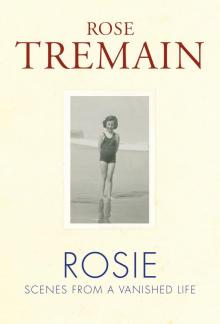 Rosie
Rosie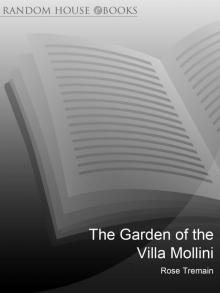 The Garden of the Villa Mollini
The Garden of the Villa Mollini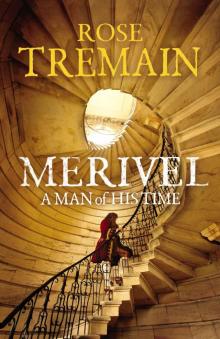 Merivel: A Man of His Time
Merivel: A Man of His Time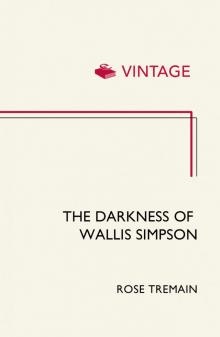 The Darkness of Wallis Simpson
The Darkness of Wallis Simpson Earth
Earth Sacred Country
Sacred Country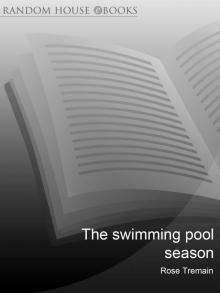 The Swimming Pool Season
The Swimming Pool Season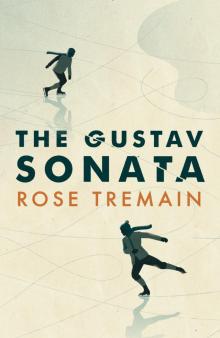 The Gustav Sonata
The Gustav Sonata Sadler's Birthday
Sadler's Birthday The Cupboard
The Cupboard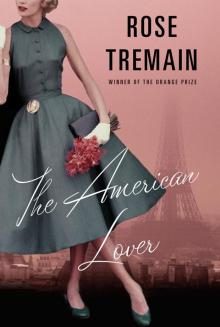 The American Lover
The American Lover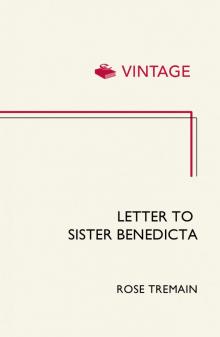 Letter to Sister Benedicta
Letter to Sister Benedicta Evangelista's Fan
Evangelista's Fan Restoration
Restoration The Road Home
The Road Home The Colonel's Daughter
The Colonel's Daughter The Way I Found Her
The Way I Found Her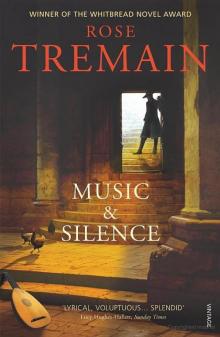 Music & Silence
Music & Silence